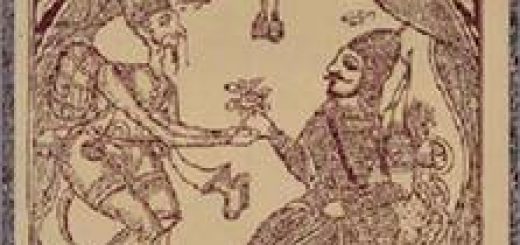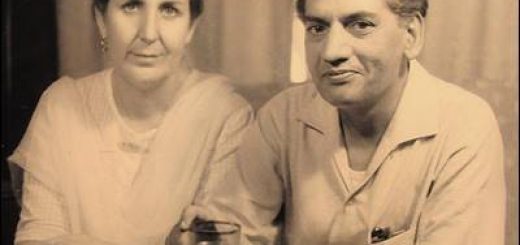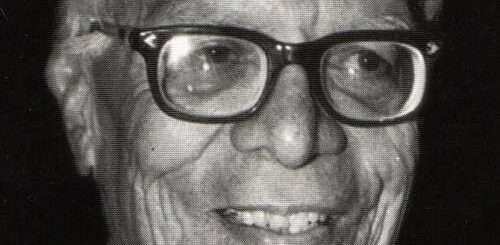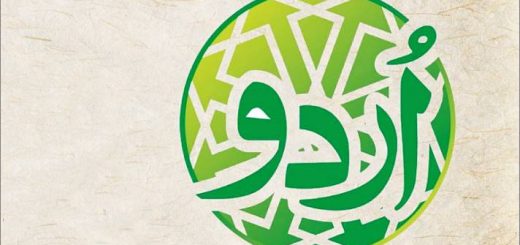Meeting the Pakistani-Swiss – By W. N. Khan
A Pakistani American College Professor Gets To See Another Side of the Desi Diaspora
Three months ago, I came to Switzerland`s Italian speaking canton of Ticino from the United States to work as a college professor at a small American-accredited liberal arts college located in the hills just outside Lugano Switzerland. As Ramadan and Eid have coincided with the beginning of my stay here, I have learned a great deal about Lugano`s small Pakistani community and have come to wonder about the varied circumstances of the Pakistani diaspora in Europe.
After unloading my luggage in a small faculty apartment that had generously been loaned to me the day I arrived, I walked downtown to Lugano`s beautiful lake front and ambled over to Reforma Square — in Lugano`s historic heart. By a Burger King, I saw a group of Eastern European men playing chess with giant wooden pieces. Next to them, was a clique of South Asian men in their forties and fifties smoking cigarrettes and talking animatedly in Punjabi. I approached the Punjabi speaking group and introduced myself as a Pakistani-American who had come to Lugano to work at the american college in the hills. Three or four of the older men began talking with me. The two younger men, in their twenties or thirties, seemed to be preoccupied in a separate conversation. One gentleman, a 53 year old named Irfan Mian wearing a sensible blue vest with zipped pockets, plaid shirt, and elastic jeans, came to the fore. I exchanged phone numbers with Irfan — he kindly offerred to help me in any way he could — in finding housing, locating local bus routes, and most importantly — finding the spices, ginger, and basmati rice without which we could never call this place home.
Irfran`s phone number remained in my pocket for a few weeks — neither of us called the other — my life had become so busy with faculty meetings, the Swiss work permit bureaucracy, and a heavy load of course preparation. My wife and son were due to join me in 3 weeks time and so, a week before they were due to land at Lugano`s small airport in Agno on-board a flight run by `Darwin Airlines,` I called Irfan hoping to get the information needed to rent an apartment and secure the ingredients necessary for a good meal. A girl answered the phone at Irfan`s place and in Italian spoke “pronto.” Irfan`s daughter then realized that I was an English-Urdu speaker and, with a heavy Italian accent, explained in Urdu: `my father is at the mosque this evening.` He would call me back after returning.
My wife and son arrived a week later and I hadn`t communicated with Irfan since, but had managed to find an apartment, buy a bed, and some furniture at IKEA. The next evening, I called Irfan again — I told him that my wife and son had arrived and it appeared that my apartment was very close to his; he offerred to visit and came over in 15 minutes. My wife was born and raised in Multan and this soon became obvious to Irfan who seemed delighted to meet a `real` Pakistani. We chatted for a few minutes — he had brought some tools over to help us install some ceiling lights. In Switzerland, apartments do not come with ceiling lights; one must buy and install one`s own and then remove these lights before one moves out. In any case, there wasn`t much work that needed to be done since I had already hired an electrician to install the ceiling lights. Irfan left and promised to come back the next evening with his wife. The next evening, Irfan Mian came over with his wife Zubeida. Zubeida was in here late forties. She wore a white chiffon shalwar kameez with a dubatta over her head; Zubeida had a noticeable streak of henna running down the part of her hair. She seemed hesitant to look directly at me, but moved directly over to sit by my wife. Both Irfan and Zubeida gazed at my wife. They had brought gifts: a crystal bowl, a prayer rug, a copy of the Quran, and some Swiss chocolates.
My wife has now become our primary interlocutor with Irfan`s family. Irfan Mian had been unemployed for several years after being laid off from a pen-factory where he`d worked for 19 years. He has recently found work at the cemetary — digging graves. One evening we walk over their apartment and I notice the seal of the city of Lugano outside the building — they live in a subsidized housing complex provided by the city. There are 4 children and two adults living in a 3 bedroom apartment. The apartment has a large television with a sattelite dish that enables the family to tune into the GEO sattelite television station at all hours of the day and night. The computers in the living room and bedrooms are also hooked up to ease chatting and telephonic contact with Pakistan. Irfan`s two daughters wear hijab, the sons wear Italian sports clothing and some jewelery as is the italian style for men. The kids are 14, 16, 18, and 22. All speak Urdu and Punjabi with heavy Italian accents. I ask Irfan how he got to Switzerland. He is an honest man — after pausing slightly, he tells me that the family came to Switzerland as refugees seeking political asylum. I am both surprised and fascinated by this — how many of the other Pakistanis I met that day in Reforma Square had also come to Switzerland as asylum seekers?
Ramadan arrives and we are soon regulars at the mosque on Via Maggio. Saturday and Sundays are family-Iftar nights when different families volunteer to prepare the evening meal for 50 or more hungry muslims. I meet a half Eritrean-half Pakistani man in his early twenties who graduated from the college where I teach. The college where I work is an expensive place to study, so I ask Faisal what he does now. He is `in-between` jobs and `looking.` Faisal`s Eritrean father lives in Tunisia. His wife is a Pakistani who grew up in Canada. They appear to be the wealthiest and the most educated people in the mosque. One other gentleman I meet is a homeopathic doctor, trained in Greece, and settled in Lugano for 18 years. His wife is Swiss and he gives me a card that indicating that he works out of a local pharmacy — I am not sure how to place the individual professionally, but everyone calls him doctor sahib. He tells me that he is a mughal descendant. The others in the mosque all have honorofics. Someone is `chaudhry sahib` another is `sheikh sahib` or `sayyid sahib` and now I am known as `professor sahib.` With their titles and long-close association, the mosque group immediately feels intimate. I like this a lot more than the crowds and the anonimity of Muslim life in a large American city like Washington, DC. Some have to the mosque from smaller cities in the same canton, places such as Lucarno, Chiasso, Bellinzona, and Saint Moritz — Lugano is the place Ticino`s Muslims look to for important gatherings of 100 or more people.
Eid arrives and I am told to look for a rented school gymnasium in the Pregassona neighborhood. I arrive by bus, in the rain, with my two year old son. As usual, the women are in the back of the gym — behind a cloth partition. I have missed the prayers, but have gotten there in time for a long khutba in Arabic given by an Arab man up front. The Arab sheikh then switches into italian. It is funny to hear an Eid khutba delivered in Italian — this is the language of the catholic church, the pope, of sacraments I associate with southern european christianity, but here Italian is the language most widely spoken by the local muslims. The arab leaves the stage and out steps a young Albanian who begins an impassioned speech in Albanian directed at the many Kosovar refugees in the gymnasium. He is obviously a talented speaker though I can understand nothing of what he is saying. He seems to have learned his craft in some socialist venue as his gestures take me to video clips I had seen of Enver Hoxha, the Albanian Communist Strongman, many years ago. Eventually the sermons end and all get up to greet one another with hugs, kisses, and handshaking. I notice the crowd separate into ethnic communities. I find myself with the 35 Pakistani men in the gymnasium. All are dressed in suits — I am the only one wearing a shalwar kameez — the one I`d bought at the Pearl Continental boutique in Lahore 5 years ago — so much time had passed since I last pulled it out, it seemed that the closet paint had begun to drip on it causing splotches of white to appear.
A man named Munawar who speaks a very rapid, very rural Punjabi dialect greets me. He invites me to his brother`s apartment for an Eid meal. I eagerly accept. We bundle into his small red car and drive to an apartment in blue-collar Viganello. Munawar spots some Arabs he recognizes on the sidewalk leaving the mosque — they are Libyan Quran students on loan to the mosque in Lugano — we drop them off before his brother`s apartment. The apartment is large and immaculate. Again, a sattelite dish brings GEO TV into the living room. A large cabinet with drawers, glass cases that now seems so standard in Pakistani households sits by the television. Verses from the Quran stand in the cabinet and hang from the walls. The smell of a wonderful and spicy meal wafts into the living room from the kitchen. I am introduced to another guest in the living room — Ghafoor Khan — a Pushto speaker, unmarried, dressed in fine suit, expensive tie, and club going-pointy shoes. He has a pack of Ambassador Muratti cigarettes in front of him and fiddles with his short stubby fingers. I am introduced as `the professor at the American college in Lugano.`
There is a balcony by the living room; the pushto speaker is already outside smoking Ambassador Murati`s. The weather is gray and the apartment looks out on a desolate stretch of the city`s outskirts — I see a partially abandoned vegetable garden on a rare plots of undeveloped land. By a bus stop, some Kosovar teens are mingling with Africans and Maghrebis in hip-hop regalia. I ask the Ghafoor Khan what he does in Lugano and he tells me that he is not working and has been on `social security` for 4 years. He tells me that everyone in the room is in the situation as his — all arrived as political asylum seekers and all are now on public assistance — Sayyid has a bad knee, Khawar injured his back at a factory, and Irfan`s eyesight is poor — according to Ghafoor, they`d all worked for many years and were now collecting the social security money that they themselves had earlier earned and put away. It is hard, he says, to find work especially after one passes the age of 40. Things had gotten particularly bad over the last 5 years when the government made it legal for Italians and EU citizens to cross the border and work here.
The meal arrives and I catch a glimpse of Munawar`s wife who has been in the kitchen all day. She is a heavy woman who looks far older than her husband. She joins us briefly and uncomfortably at the dining table and leaves after a short while. The food is incredible. One of the pleasures of life in Switzerland is the quality of the food: vegetables, fruit, dairy products, and meat are better than any other place I`ve ever been — tomatoes taste like real tomatoes and the meat, particularly the chicken, is bursting with flavor. Having come from the United States where agriculture is an industrialized process shot through with chemical engineering, Switzerland`s fine ingredients really bring out the best in Pakistani cuisine.
The next day Munawar agrees to take me to Bellinzona. Again, he is dressed in a full white suit. We drive through Ticino and exit at Bellinzona. Highways have a way of reducing the most magnificent landscapes to a series of exit ramps — driving through Italy and Switzerland on the Autostrade is indistinguishable from a drive through the interstates of Missouri or Kansas. Munawar takes me to a bar near the railway station — the bartender on duty is his old friend Ejaz. It is always a bit uncomfortable for Pakistani bartenders to meet other members of the community while on duty. I felt like ordering a beer, but settled for a tea — Munawar had given me the impression that he was a very pious and observant Muslim — I did not want to upset him. Ejaz did not have much to say to me, but seemed to relish the gossip and news that Munawar was bringing from Lugano. They discussed the khutbas that had been given in Northern Italy — one Imam there had encouraged Muslims to have more children — this would lead to power and importance in a demographically challenged society. Ejaz refused to accept payment for the tea. We left after an hour.
While walking through town, Munawar spotted another old friend — Sajjad Farooq. Farooq Sahib was the one and only enterpreneur I`d seen in the Pakistani-Swiss community. He owned a fleet of eight taxis in Bellinzona and himself drove a taxi in town. We settled in for some tea and conversation at a restaurant near the train station. Farooq Sahib carried himself with an air of pride and authority — he had done well. He drove a $60,000 Mercedes and was planning to open a second business — a travel agency in Milan. He looked at Munawar with a mixture of pity and disdain. He told me that social security had ruined a lot of Pakistani men — the easy money robbed them of all motivation to work and the requirement that they return money received once they found work was the perfect disincentive to do anything renumerative. I asked him why none of the others in the community had gone into business — this after all, is what Pakistanis do — they open their own businesses and then rise economically. Farooq told me that the community in Ticino had come from very poor backgrounds in Pakistan and that Swiss welfare made any such risk taking unnecessary and unwise.
We left the restaurant in Farooq`s Mercedes. He opened my door chauffer-style — an unusual gesture, but automatic gesture for someone who has to do this hundreds of times a month. I was wondering now if Munawar had been hurt by Farooq`s comments about the impact of welfare on Pakistani men in Ticino. Our conversation turned to the possibilities of returning to Pakistan. I asked Munawar if he ever wanted to return. The thought did not seem to occur to him, though he told me that he had started construction on a home for the family in Pakistan — the land had come for free, but the construction work alone would cost about $150,000. He was planning on going to Pakistan in December and staying for 4 months — to supervise construction and to see family. I asked him if his wife or children would join him there and he told me they would not be coming with him. His wife would remain in Ticino with the kids.
It was late evening now as we approached Lake Lugano. The sky had turned magenta and I could see Campione d`Italia in the distance across the lake. I asked Munawar about his 18 year old son Shoaib. Munawar told me that Shoaib had finished a secondary school course in commerce, but was having a lot of trouble finding work. He didn`t know what to do to help him get a footing in the workforce. His younger son, Safraz, was on a better track — he would be admitted to a Swiss University and had plans to go into architecture. Munawar seemed to regret all the time that Shoaib had spent playing football in highschool — if only he`d focused more on studying.
I met Shoaib and the several others among the high school age Pakistani Luganese. Only one had work — the rest were unemployed, but looking. A dangerous dynamic of intergenerational welfare dependency seemed to be in late gestation.
Ticino has a high unemployment rate everywhere, but to be knocked out and denied a future at the age of 18 seemed incredibly harmful for all.
I thanked Munawar for spending the entire day with me. He told me that it was nothing — he was free all day and would be available for any future excursion I had in mind.













